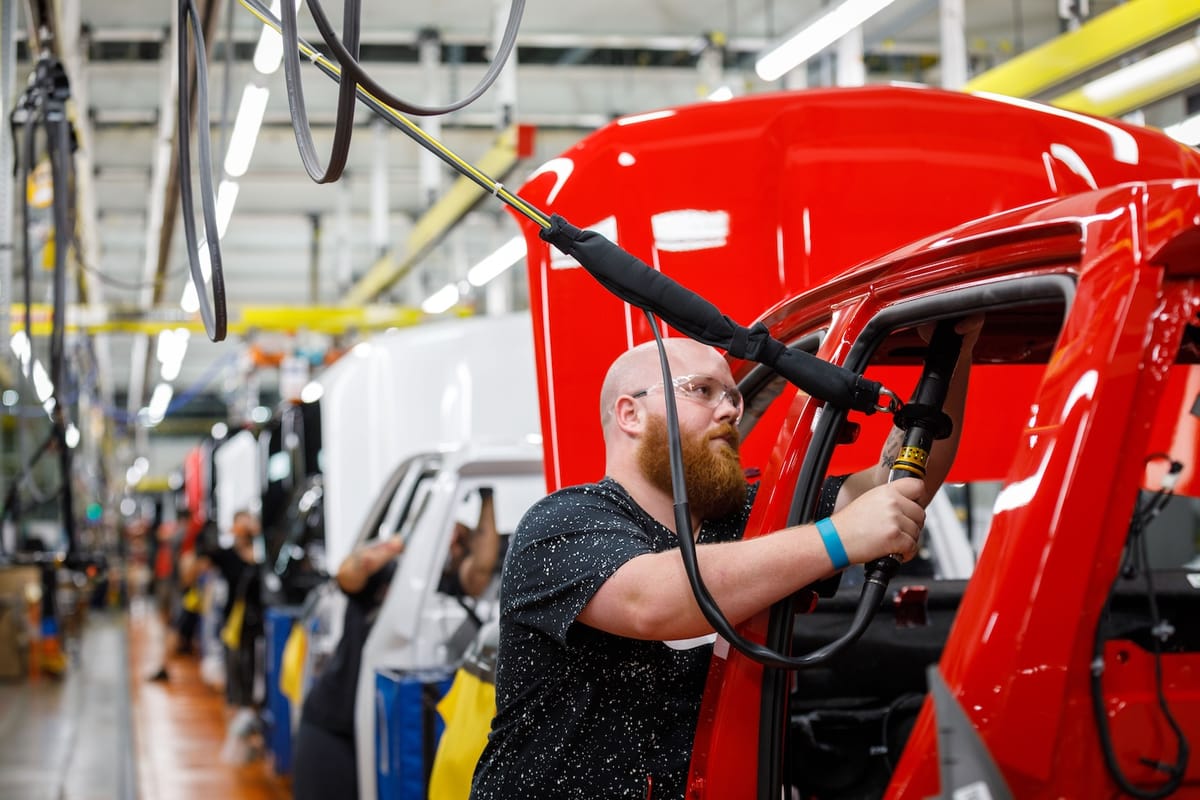

Supporting American Auto Industry
President Donald J. Trump has taken action to support American carmakers by easing the impact of tariffs on the auto industry. His administration announced measures to reduce duties on foreign parts used in vehicles manufactured in the United States, ensuring domestic manufacturers remain competitive. This move comes as part of a broader strategy to strengthen the U.S. auto sector, which employs millions and drives economic growth in states like Michigan, home to Ford, General Motors, and Stellantis.
The decision follows intense lobbying from industry leaders who warned that blanket tariffs could raise car prices and hurt sales. By exempting certain foreign parts from additional levies, such as those on steel and aluminum, the administration aims to reward companies that invest in American manufacturing. Commerce Secretary Howard Lutnick emphasized the policy’s intent, stating, 'President Trump is building an important partnership with both the domestic automakers and our great American workers.'
Industry Leaders Applaud the Move
Leaders of major U.S. carmakers expressed gratitude for the tariff relief. General Motors CEO Mary Barra praised the administration’s approach, saying, 'We believe the president’s leadership is helping level the playing field for companies like GM and allowing us to invest even more in the US economy.' Ford’s CEO Jim Farley echoed this sentiment, noting, 'The changes will help mitigate the impact of tariffs on automakers, suppliers, and consumers.' These statements reflect a shared optimism that the policy will protect jobs and keep production costs manageable.
The auto industry, particularly in Michigan, has faced challenges from tariffs that took effect earlier this month, including a 25% duty on imported vehicles and parts. Some manufacturers, like Stellantis, had idled factories in Canada and Mexico, laying off workers in the U.S. who supplied those plants. The tariff relief is seen as a lifeline to prevent further disruptions and encourage companies to expand domestic production.
Economic Impact and Job Creation
The tariff adjustments are expected to have a significant economic impact by encouraging automakers to invest in U.S. facilities. For example, General Motors announced plans to add 250 new jobs at its Fort Wayne, Indiana, plant to boost pickup truck production. This aligns with Trump’s goal of bringing manufacturing back to American soil, a promise that resonates with workers in the industrial heartland. The administration’s policy also includes exemptions for vehicles compliant with the United States-Mexico-Canada Agreement, further incentivizing North American production.
Analysts estimate that without these adjustments, new vehicle prices could have risen by $2,000 to $10,000, depending on the model. By easing duties on parts, the administration aims to keep car prices from escalating. The Center for Automotive Research noted that tariffs could cost the industry $108 billion in 2025 if not carefully managed, underscoring the importance of this relief.
A Strategic Approach to Tariffs
President Trump’s tariff strategy has been a cornerstone of his economic agenda, aimed at revitalizing American manufacturing. While the 25% tariffs on imported vehicles remain in place, the decision to ease duties on parts shows flexibility in addressing industry needs. Trump hinted at this approach on April 14, telling reporters, 'I’m looking at something to help some of the car companies with it. They need a little bit of time because they’re going to make them here.' This pragmatic stance has boosted confidence among investors, with Wall Street reacting positively to the news.
The policy also responds to concerns from trade groups like the American Automotive Policy Council, which represents Ford, General Motors, and Stellantis. Matt Blunt, the council’s president, stated, 'There is increasing awareness that broad tariffs on parts could undermine our shared goal of building a thriving and growing American auto industry.' By balancing tariff enforcement with targeted relief, the administration is fostering a partnership with automakers to achieve long-term growth.
Looking Ahead
As President Trump prepares to mark his first 100 days in office with a rally in Michigan today, the tariff relief underscores his commitment to American workers. The auto industry, a symbol of U.S. industrial strength, stands to benefit from policies that prioritize domestic production. With companies like South Korean based Hyundai pledging $21 billion in U.S. investments, the administration’s approach is already yielding results.
The road ahead will require continued collaboration between the administration and automakers to navigate global supply chains and maintain affordability. For now, the tariff relief offers a clear signal that Trump is sensitive to consumer price impact and acting to secure the future of American car manufacturing.
Dues are $12 per year. Member benefits:
✅ Ad-Free Website Viewing
✅ Advocacy for Republican Seniors
✅ 120+ Senior Discounts
✅ Member Only Newsletters